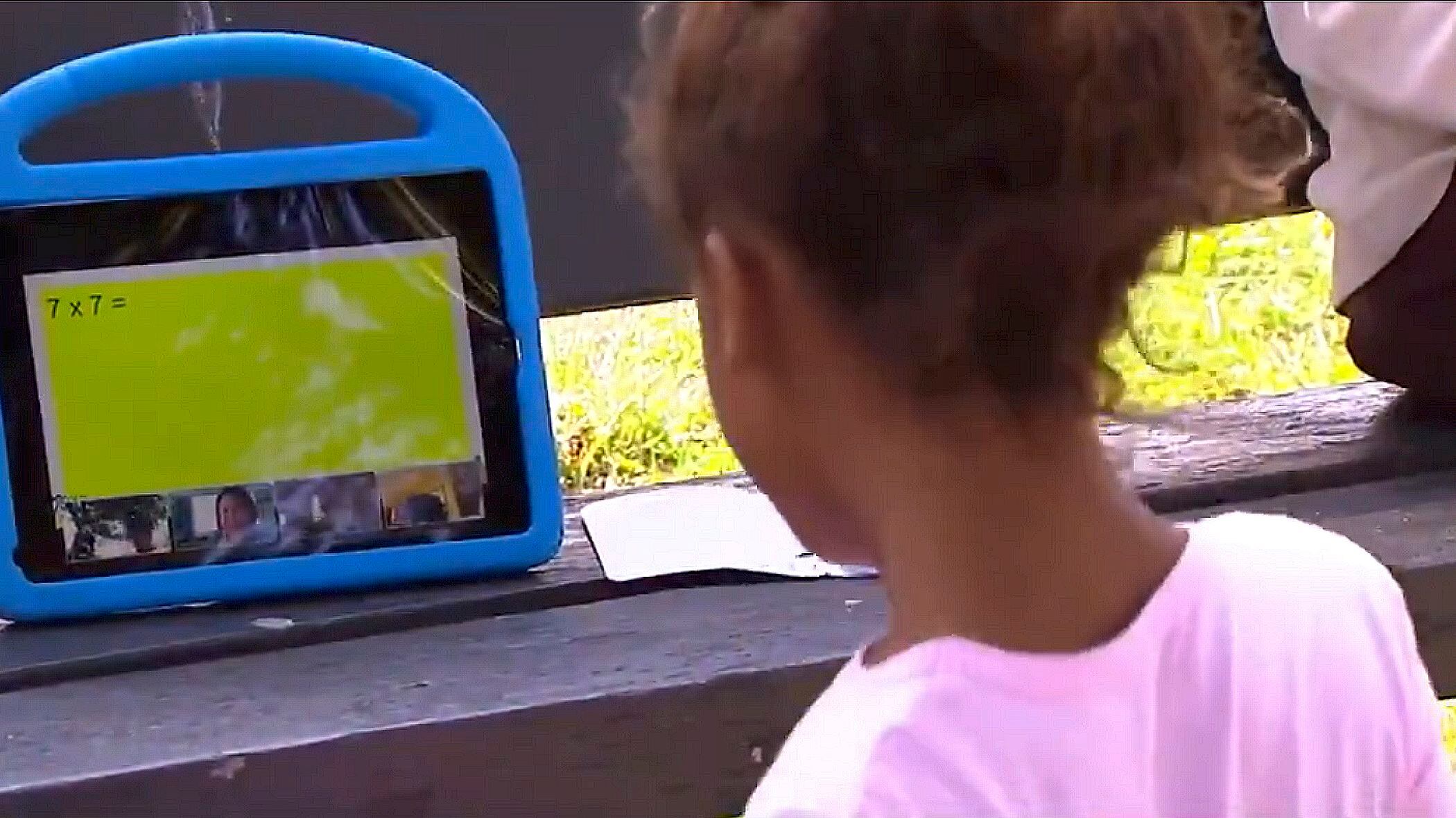Like many families, Paula Christodoulides had a difficult choice to make: whether or not to send her little ones Jaiden and Madison to school in person.
The decision had an added layer of complication for the 66-year-old and her family. Christodoulides' grandchildren are among the 2 percent of American kids being raised by their grandparents.
"Both sides have negative parts and positives," Christodoulides said. "Sending them to school, you worry if they get sick. You keep them home, you worry about their emotional feelings."
Many families are grappling with the decision to send their kids to school or opt for remote learning. But for the nearly 3 million kids being raised by their grandparents, there are additional risk factors to consider: the elderly are more vulnerable to the negative effects of COVID-19. About eight out of 10 coronavirus-related deaths in the U.S. are among those 65 and older, according to the Centers for Disease Control and Prevention.
However, the American Academy of Pediatrics (AAP) generally recommends children go to school when they can because it facilitates social interactions healthy for their growth, not to mention teachers are often better equipped to educate students in person.
There's also evidence that grandchildren raised by their grandparents may have more emotional and educational needs. A recent study in AAP's journal Pediatrics showed children in this scenario were five times more likely to have experienced at least one adverse childhood experience (ACE), including death of a parent or being in a household with someone with a substance abuse problem, compared to children raised by their parents.
The study's subjects also were twice as likely to have been diagnosed with ADHD. ACEs have also previously been linked to a higher likelihood that the child will have the disorder, according to the chief of developmental and behavioral pediatrics at Cohen Children's Medical Center, Dr. Andrew Adesman, one of the authors of the study.
"Children being raised by their grandparents, there's a multitude of reasons, unfortunately, none of them likely reflect happy stories," said Adesman.
He worries this scenario may become more common.
"Now with COVID, for example, taking parents in their 40s or 50s, it's one more factor that could potentially contribute to children needing to be raised by their grandparents," Adesman said.
"It's what you have to face"
Christodoulides and her husband raised three children of their own in Queens, New York. She spent her career working as a school aide in the Jackson Heights neighborhood. Still, it didn't prepare her for the challenges of using today's technology and other virtual learning software.
"I'm not an educator, and I don't know the system," Christodoulides, whose family was part of the Pediatrics study, explained. "It's difficult. I can't leave the room."
When remote learning began abruptly last school year, she would have nightmares about how to teach and help her grandkids.
"I would go to bed and [think of] Google, Google Classroom," she said. "It was in my head."
The couple gained custody of Jaiden, 10, and Madison, 8, after their daughter was declared unfit to be her children's caregiver. Their mother later passed away, and the Christodoulides have since adopted their grandchildren.
"They are very sweet, very intelligent, but full of energy," Christodoulides pointed out. "You constantly have to correct them. You constantly have to guide them. But they also have nice moments. They are talented, smart, and active. So they keep me active."
In addition to her age, Christodoulides said raising her grandchildren is more difficult than raising her kids because Jaiden was diagnosed with ADHD. She's also faced recent medical issues of her own, including a two-week stay in the hospital late last year and constant doctor's visits.
"He's active, and he constantly has to be corrected on a lot of things — and it drains you out," she said.
She worries about both grandkids getting left behind in the system without the right support also says they need to have interactions with other children their ages. In the end, Christodoulides decided to send Jaiden to in-person school twice a week and Madison once a week.
"I do worry, but not to the point that I'm worried by them going to school, that I can get sick," she said. "I feel I can get sick anywhere. I'm sure and I pray to God that the educators who decide to open the schools can go through the right precautions and are extra careful."
Jaiden admitted school with the mask restrictions is hard. He has to wear a mask during gym class, and his teacher is not always able to hear him with the covering on if he sits far away. But he said he's glad to see everyone.
"At first I was happy because I didn't like school back then," Jaiden said about the initial school shutdown. "But if I knew it was going to be this long and [I had to] stay at home all day, I wouldn't have been excited. I would have really wanted to go to school."
The choice, however, means Christodoulides won't be able to see her son's family. His wife is pregnant, and the family is worried that with the kids going to school they may become carriers for the virus.
"You know there's a lot of issues with this," Paula pointed out. "It's not just what's going on, it's what you have to face."



